New Books
NEW - new books are now postage-free within Germany!
Check our selection of english-language books below.
Our German language section of new books is HERE.


C.L.R. James was a leading figure in the independence movement in the West Indies, and the black and working-class movements in both Britain and the United States. As a major contributor to Marxist and revolutionary theory, his project was to discover, document, and elaborate the aspects of working-class activity that constitute the revolution in today's world. In this volume, Noel Ignatiev, author of How the Irish Became White, provides an extensive introduction to James’ life and thought, before presenting two critical works that together illustrate the tremendous breadth and depth of James’ worldview. "The Invading Socialist Society," for James the fundamental document of his political tendency, shows clearly the power of James’ political acumen and its relevance in today’s world with a clarity of analysis that anticipated future events to a remarkable extent. "Every Cook Can Govern," is a short and eminently readable piece counterpoising direct with representative democracy, and getting to the heart of how we should relate to one another. Together these two works represent the principal themes that run through James’s life: implacable hostility toward all “condescending saviors” of the working class, and undying faith in the power of ordinary people to build a new world. Praise:“It would take a person with great confidence, and good judgment, to select from the substantial writings of C.L.R. James just two items to represent the 'principal themes' in James' life and thought. Fortunately, Noel Ignatiev is such a person. With a concise, but thorough introduction, Ignatiev sets the stage and C.L.R. James does the rest. In these often confusing times one way to keep one’s head on straight and to chart a clear path to the future is to engage the analytical methods and theoretical insights of C.L.R. James. What you hold in your hands is an excellent starting point.” ---John H. Bracey Jr., professor of African-American Studies at the University of Massachusetts, Amherst and co-editor of Strangers & Neighbors: Relations Between Blacks & Jews in the United States. “C.L.R. James has arguably had a greater influence on the underlying thinking of independence movements in the West Indies and Africa than any living man.”--Sunday Times “It remains remarkable how far ahead of his time he was on so many issues.”--New Society About the Authors: In the West Indies, C.L.R. James is honored as one of the fathers of independence. In Britain he is feted as a historic pioneer of the black movement. He is generally regarded as one of the major figures in Pan-Africanism, and a leader in developing a current within Marxism that was democratic, revolutionary, and internationalist. His long life and impressive career played out in Trinidad, England, and America. For the last years of his life, he lived in south London and lectured widely on politics, Shakespeare, and other topics. He died there in 1989. Noel Ignatiev wrote How the Irish Became White, recently reissued as a Routledge Classic. He co-edited Race Traitor (winner American Book Award 1997), and edited Lesson of the Hour: Wendell Phillips on Abolition and Strategy. He teaches at Massachusetts College of Art and Design. Product Details:Author: C.L.R. James Edited by Noel IgnatievPublisher: PM PressISBN: 978-1-60486-047-4Published Feb. 2010Format: PaperbackPage Count: 160 PagesSize: 8.5 by 5.5Subjects: Politicial Science, Marxism, History
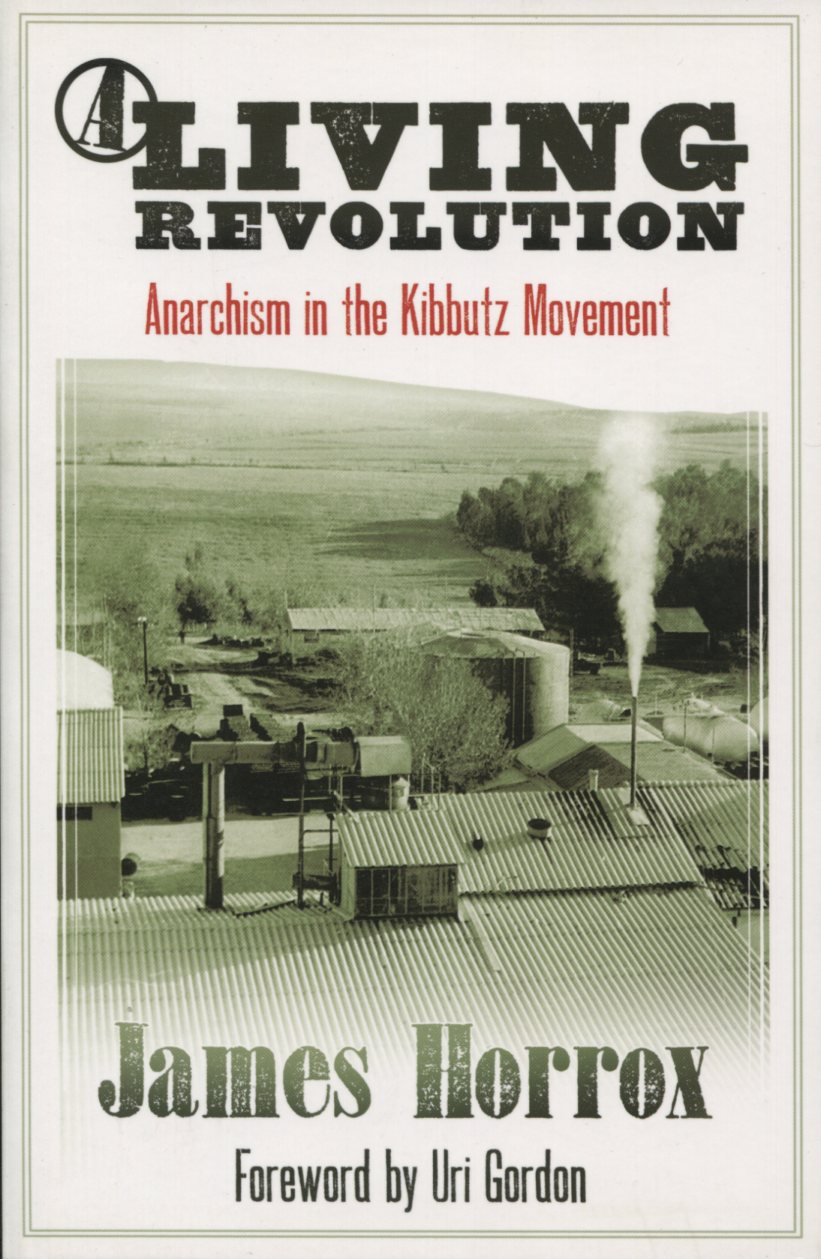
Against the backdrop of the early development of Palestinian-Jewish and Israeli society, James Horrox explores the history of the kibbutz movement: intentional communities based on cooperative social principles, deeply egalitarian and anarchist in their organisation."The defining influence of anarchist currents in the early kibbutz movement has been one of official Zionist historiography's best-kept secrets...It is against this background of induced collective amnesia that A Living Revolution makes its vital contribution. James Horrox has drawn on archival research, interviews and political analysis to thread together the story of a period all but gone from living memory, presenting it for the first time to an English-reading audience. These pages bring to life the most radical and passionate voices that shaped the second and third waves of Jewish immigration to Palestine, and also encounter those contemporary projects working to revive the spirit of the kibbutz as it was intended to be, despite, and because of, their predecessors' fate." —Uri Gordon, from the foreword"A brilliant study of anarchism in the kibbutz movement, particularly regarding economy and polity. Revealing the roots and processes of the influx of anarchist ideas and practices into the early Jewish labour movement, assessing the actual kibbutz practice and seeing the kibbutzim as both a model way to live and a set of experiments to learn from, Horrox gives this history the meticulous attention it deserves. A Living Revolution is comprehensive, caring and even passionate, but also critical. Horrox's study is an exemplary undertaking we can learn much from."—Michael Albert, editor Znet and Z Magazine"James Horrox's accessible and clear history of the kibbutz movement and its intellectual roots is interesting and informative. Sensitive to political contexts in which the movement has operated, it provides a refreshing reminder of the constructive possibilities of anarchist ideas."—Ruth Kinna, editor Anarchist Studies
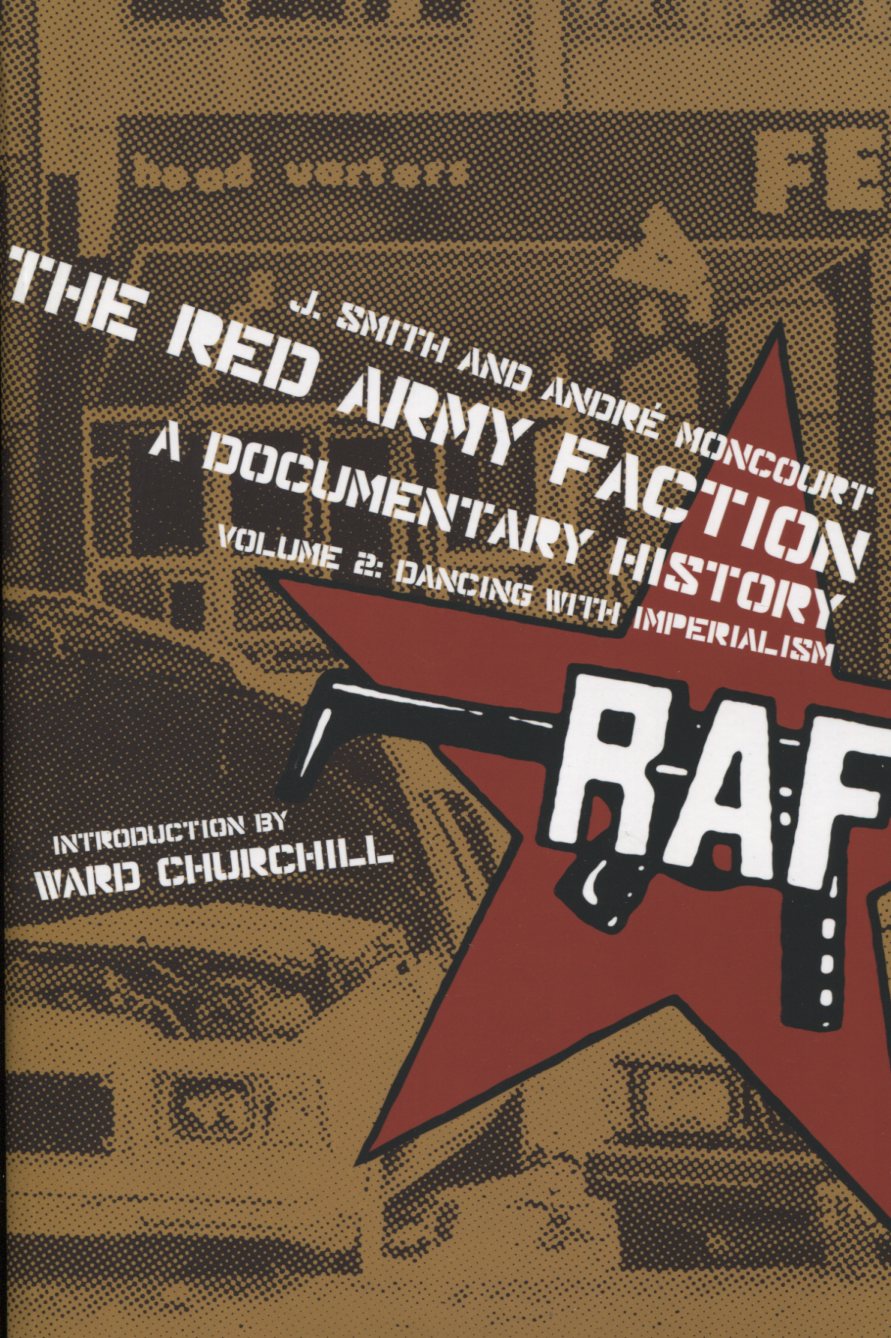
Picking up where the first volume ended, Dancing with Imperialism covers the period following the Red Army Faction's - West Germany's notorious urban guerrillas - near total decimation in 1977. This work includes the details of the guerrillas' operations and the group's texts from 1978 up until the 1982 May Paper. This was a period of reorientation for the RAF, who fought against the fascist state. Will be required reading for those interested in the history of protest movements and all who wish to understand the challenges of revolutionary struggle. The long-awaited Volume 2 of the first-ever English-language study of the Red Army Faction—West Germany’s most notorious urban guerillas—covers the period immediately following the organization’s near-total decimation in 1977. This work includes the details of the guerilla’s operations, and its communiqués and texts, from 1978 up until the 1984 offensive. This was a period of regrouping and reorientation for the RAF, with its previous focus on freeing its prisoners replaced by an anti-NATO orientation. This was in response to the emergence of a new radical youth movement in the Federal Republic, the Autonomen, and an attempt to renew its ties to the radical left. The possibilities and perils of an armed underground organization relating to the broader movement are examined, and the RAF’s approach is contrasted to the more fluid and flexible practice of the Revolutionary Cells. At the same time, the history of the 2nd of June Movement (2JM), an eclectic guerilla group with its roots in West Berlin, is also evaluated, especially in light of the split that led to some 2JM members officially disbanding the organization and rallying to the RAF. Finally, the RAF’s relationship to the East German Stasi is examined, as is the abortive attempt by West Germany’s liberal intelligentsia to defuse the armed struggle during Gerhard Baum’s tenure as Minister of the Interior. Dancing with Imperialism will be required reading for students of the First World guerilla, those with interest in the history of European protest movements, and all who wish to understand the challenges of revolutionary struggle. Praise: “This collection is not simply a documentary of the West German revolutionary Left at a particular point in the Cold War 1970s. It is more important for the insights it provides into the challenges, obstacles, and opportunities of waging armed struggle within the context of a wealthy, well-resourced, Western capitalist state. In this, the experiences and activities of the RAF are unique in the lessons they might teach organizers in Western capitalist milieus. In our own context, it is likely that future conditions of radical social change, and certainly revolutionary struggles, will more closely approximate those engaged by the RAF in 1970s West Germany than the much more influential examples of Russia in 1917 or Spain in 1936.”—Jeff Shantz, Upping the Anti "The editors of this work, J. Smith and André Moncourt, have created an intelligently political work that honestly discusses the politics of the Red Army Faction during its early years. Their commentary explains the theoretical writings of the RAF from a left perspective and puts their politics and actions in the context of the situation present in Germany and the world at the time. It is an extended work that is worth the commitment required to read and digest it. Not only a historical document, the fact that it is history provides us with the ability to comprehend the phenomenon that was the RAF in ways not possible thirty years ago" —Ron Jacobs, Counterpunch (on Volume 1) About the Editors: J. Smith is the pseudonym of an activist who has been involved in the radical left for over twenty years. André Moncourt is the pseudonym of a writer with his political roots in the movements of the seventies and eighties. Together they co-edited The Red Army Faction, A Documentary History, Volume 1: Projectiles for the People, and co-authored Daring to Struggle, Failing to Win. Product Details: Editors: J. Smith and André MoncourtIntroduction by Ward ChurchillPublisher: PM Press/KersplebedebISBN: 978-1-60486-030-6Published June 2013 Format: PaperbackSize: 9 by 6Page count: 480 PagesSubjects: Politics/History
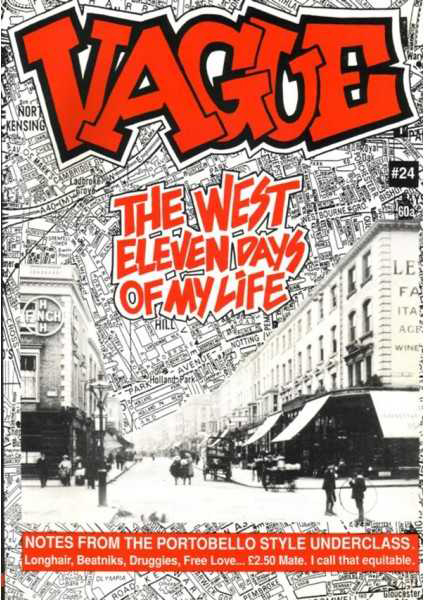
Notes form the Portobello Style Underclass. Longhair, Beatniks, Druggies, Free Love!
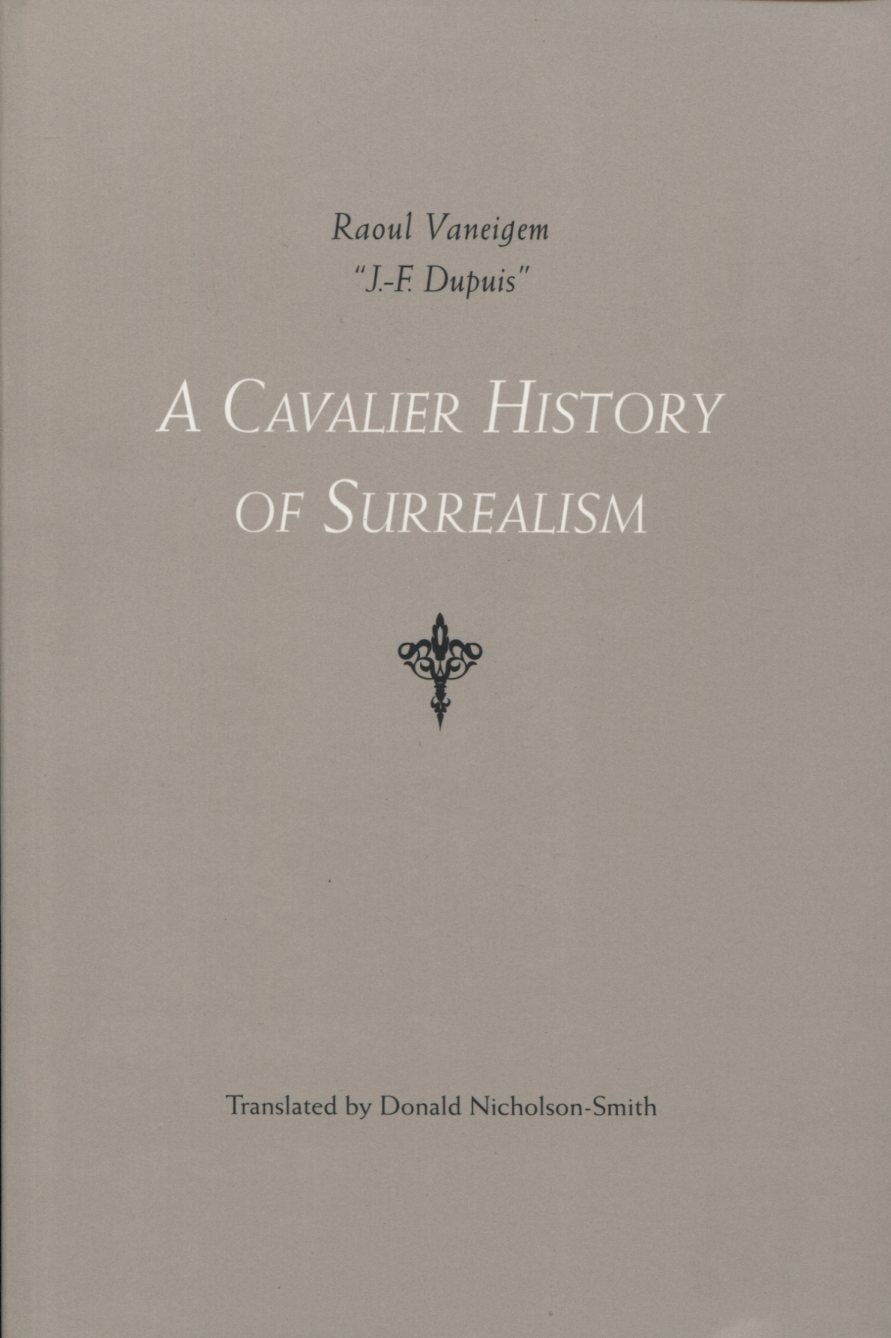
(Active Distro info:) A down-and-dirty survey of the Surrealist movement written under a psuedonym in 1970 by leading Situationist theorist Raoul Vaneigem. Intended for a high-school readership, and dashed off in two weeks, Vaneigem's sketch bars no holds: disrespectful in the extreme, blistering on Surrealism's artistic and political aporias, and packed with telling quotations, it also gives respect where respect is due. Locating Surrealism's 'original sin'in its ideological nature, Vaneigem clearly identifies the 'radioactive fragment of radicalism' that the movement never managed completely to shed. If you want an unequivocal answer to the question, 'What was living and what was dead in Surrealism?', look no further. and for readers interested in the Situationists, this short book sheds a great deal of light on their attitudes, negative and positive, towards their Surrealist predecessors.

Can we find alternatives to the failed radical projects of the twentieth-century? What are the possible forms of struggle today? How do we fight back against the misery of our crisis-ridden present?"Communization" is the spectre of the immediate struggle to abolish capitalism and the state, which haunts Europe, Southern California, and wherever the real abstractions of value that shape our lives are contested. Evolving on the terrain of capitalism new practices of the "human strike," autonomous communes, occupation, and insurrection have attacked the alienations of our times. These signs of resistance are scattered and have yet to coalesce, and their future is deliberately precarious and insecure.Bringing together voices from inside and outside of these currents Communization and Its Discontentstreats Communization as a problem to be explored rather than a solution. Taking in the new theorisations of Communization proposed by Tiqqun and The Invisible Committee, Théorie Communiste, post-autonomists, and others, it offers critical reflections on the possibilities and the limits of these contemporary forms, strategies, and tactics of struggle.Contributors include: Alberto Toscano, Nicole Pepperell, Anthony Iles, Marina Vishmidt, Evan Calder Williams, Jason E Smith, Théorie Communiste, Endnotes, Jasper Bernes, John Cunningham, George Ciccariello-Maher, and Alexander Galloway.

Exploding as politically revolutionary at the heart of the Paris 1968 uprisings, the Situationist International has proved a tenaciously compelling radical movement in terms of asthetics and political theory.This crucially important book is not only a philosophical landmark, it is also a cult classic that has has established the Situationist movement -- of which Debord was the key member -- as one of the most influential of the twentieth century.This new translation by John McHale is the first officially authorised in English. The book has previously been available only in underground or online formats, so McHale's work promises to bring the work of the Situationists to an even wider audience.The Real Split in the International sees Debord not only evaluate the movement as a whole, but also signal the end of it. For him, it had become clear that the Situationist's success had produced -- within its own ranks as well as outside them -- a host of fans and 'onlookers' who amounted to little more than consumers of a radicality that had become fashionable. In this way the movement had begun to encompass the very 'society of the spectacle' that the Situationists had challenged. There was a danger that Situationist theory could turn into ideology -- Debord's reaction was to break up the movement. About The Translator John McHale has translated Alice Becker-Ho's Les Princes du Jargon, her L'Essence du Jargon and Guy Debord's Panégyrique Volume 2. He lives in London.Guy Debord was a revolutionary theorist, a film-maker, the indisputable head of the Situationists, and a key figure in the constellation of French theorists and intellectuals from the 1960s onwards. He committed suicide in 1995 at the age of 63. Identifying everyday life as the terrain of revolutionary activity, he added new and apposite dimensions to Marxist thinking in the late twentieth century:The Society of the Spectacle, his seminal work, characterised a society resting not only on the alienated labour of workers, but on the alienated lives of spectators.
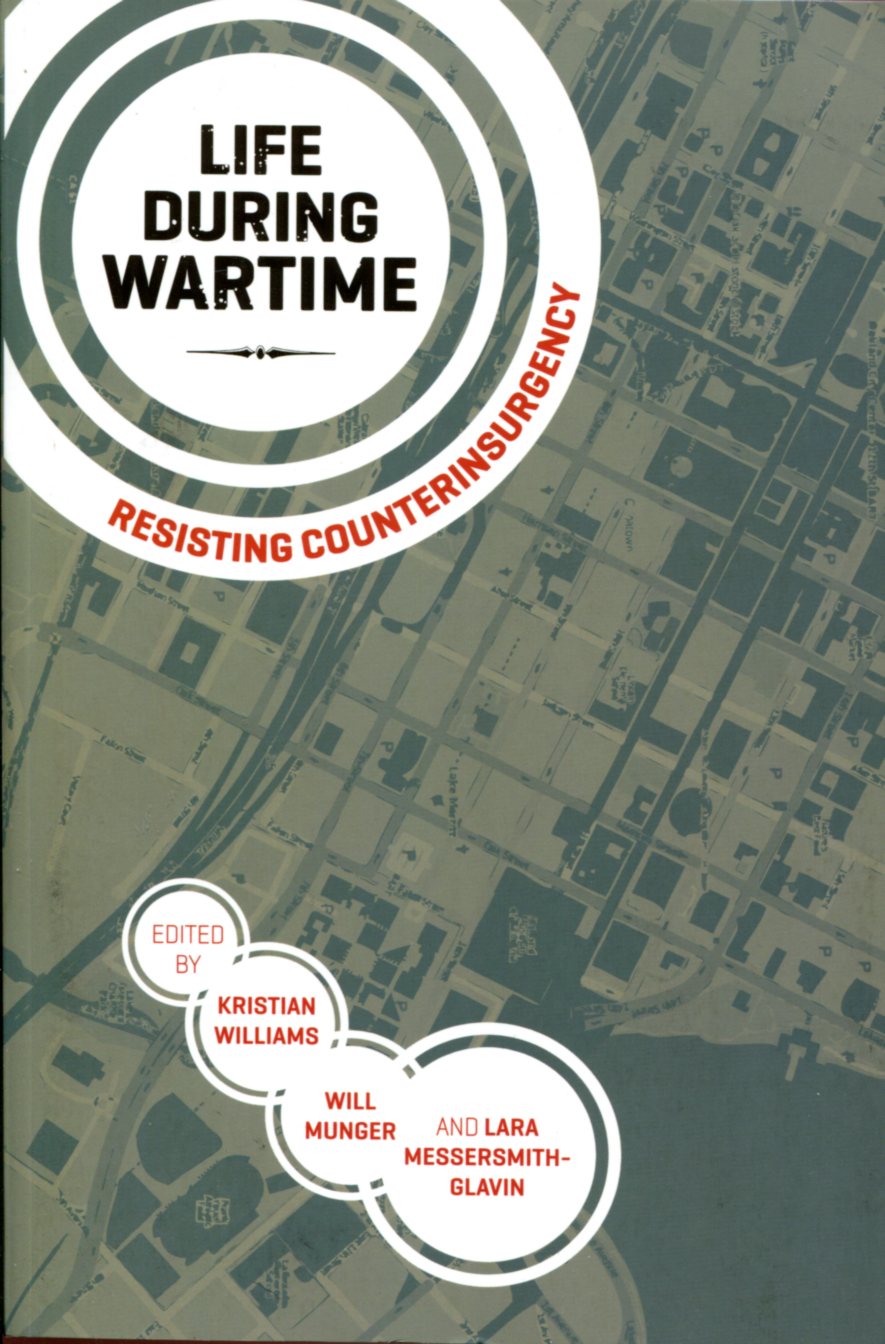
Kristian Williams is the author of Our Enemies in Blue: Police and Power in America,American Methods: Torture and the Logic of Domination, Confrontations: Selected Journalism, and Hurt: Notes on Torture in a Modern Democracy. Lara Messersmith-Glavinis the founder and managing editor of the non-fiction journal Alltopia, and on the board of directors for the Institute for Anarchist Studies. Will Munger was the main organizer of the Counter-Counterinsurgency Convergence in April 2011. "Together, the writers sound a sobering warning: the American government is an iron fist in a velvet glove whose purpose remains preserving the status quo and enriching the rich."—Publishers Weekly

Of all living composers, Dumitrescu is the one who has most exploded sound. Dumitrescu’s work is a negation, from the depths, of everything in contemporary music symptomatic of distraction, of banalisation, and of a radical loss of purpose. His music is not a new convolution in the knot of modern music, but an unravelling of the curse.Tim Hodgkinson As a creator of radical music that breaks convention, riding on the edge of the classical avant garde onto realms more closely associated with the likes of Nurse With Wound or The Hafler Trio, Iancu Dumitrescu has the talent to lure you in, mystify and startle with unnerving ferocity.Alan Freeman ContentsBen Watson: Why The AMM Says ‘Listen to Dumitrescu!’ 1Ben Watson: Spectrum Festival Preview 3Ronsen, Peyret, Leroy: Iancu Dumitrescu - Acousmatic Provoker 7Ben Watson: Statement at Conway Hall, Spectrum 2008 38In Resonance with Iancu Dumitrescu and Ana-Maria Avram 39Out to Lunch: Our Kinetic Kynicism Knows No Bounds 84Iancu Dumitrescu: On the Inside Looking In 87Tim Hodgkinson Interviews Iancu Dumitrescu 95Tim Hodgkinson: A Note on Phenomenology 107Costin Cazaban: An Adventure in Experimental Music 109Eugene Thacker: Pulse Demons (extract) 125Andy Wilson and Ben Watson: The Music of Iancu Dumitrescu 131Ben Watson: Spectral Music at the Beginning of the 21st Century 159Guillaume Ollendorff: At the Heart of Chaos 163Guillaume Ollendorff: The Society of the Spectrum 171Tim Hodgkinson: The Tasks of the Composer 193Iancu Dumitrescu: Reply to Tim Hodgkinson 207Tim Hodgkinson: Reply to Iancu Dumitrescu 213Ryan Kirk: Interviews Dumitrescu 215Ana-Maria Avram: Composer From Bucharest, Romania 237Iancu Dumitrescu: Biographical Notes 245Iancu Dumitrescu: Catalogue of Works 253Pressbook 263Discography 285Related Recordings 359Index 369

Robert Dellar’s reminiscences impart a strange, unwholesome joy, like smoking a cig dipped in popper juice. The only response to the atrocious farce of modern life has to be this savage laughter.Out to Lunch In this incendiary slice of under-the-radar British social history we meet everyone from Ronnie Corbett to a Broadmoor inmate whose index offence was the subject of a D-Notice. Robert Dellar’s anti-authoritarian and take-no-prisoners spirit of mischief makes it possible for readers of every persuasion to find something to offend their sensibilities.Simon Morris (Ceramic Hobs)
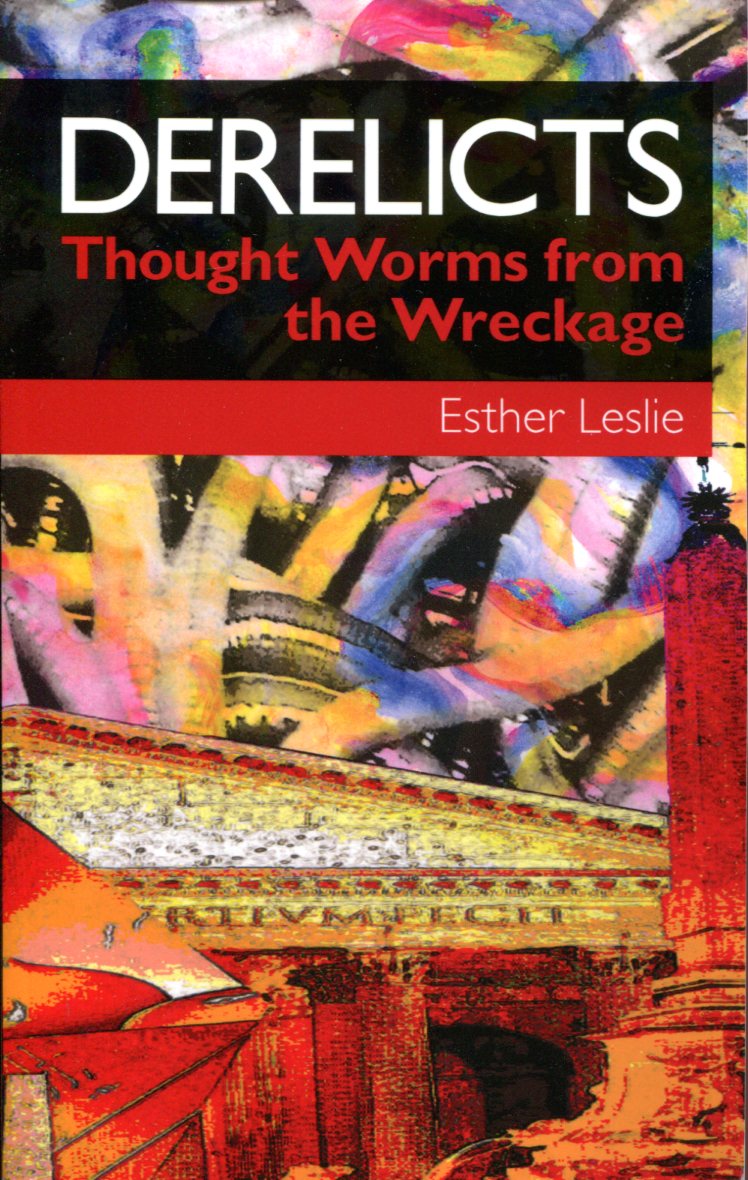
Philosophy and art with the imagination to actually change the world: this is the unfinished dream of history and the heart of the revolutionary modernism of the early 20th century, which globalised war and exploitation managed indefinitely to defer. Esther Leslie reopens the cold case on filmmakers, artists, thinkers and other animals, exiled or otherwise Disneyfied, and finds still-warm fertile ground for a wild future as yet unfulfilled. From ideal homes with traces erased to utopian rivers drawn back to their source, the alienated subject of history discerns its rightful place in the present tense, with no room for buts or half-measures. The derelicts of history find new life beyond commodified thought: would that the same could be said for all their readers..
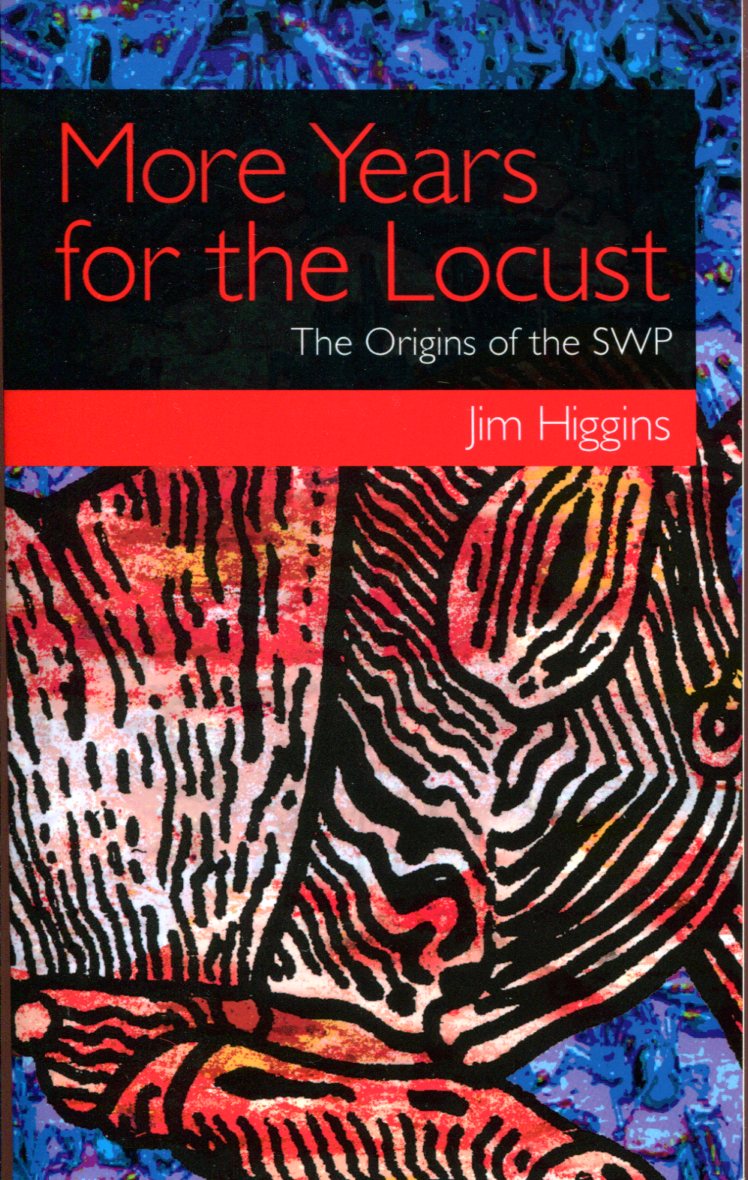
First published by the IS Group (90s forerunners of the AMM & Unkant) in 1997, More Years for the Locust is a history of the origins of the SWP written by Jim Higgins, a leading member of the Socialist Review Group and International Socialists (forerunners of the SWP), who directed the group's industrial work for many years as well as working on Socialist Worker, before forming the IS Opposition which opposed the group's turn away from its rank and file strategy in the trade unions. The book tells the story of the British Trotskyists as they emerged from the Second World War, and of how the group around Tony Cliff built a distinct tendency based on the theories of State Capitalism and the Permanent Arms Economy. Higgin's describes the development of this, the IS tendency from Cliff's early years in Palestine, through the 50s and 60s, down to the expulsion of the IS Opposition in the mid-70s, shortly before the International Socialists declared themselves a fully blown revolutionary party, the SWP. Published with a new Foreword by John Game
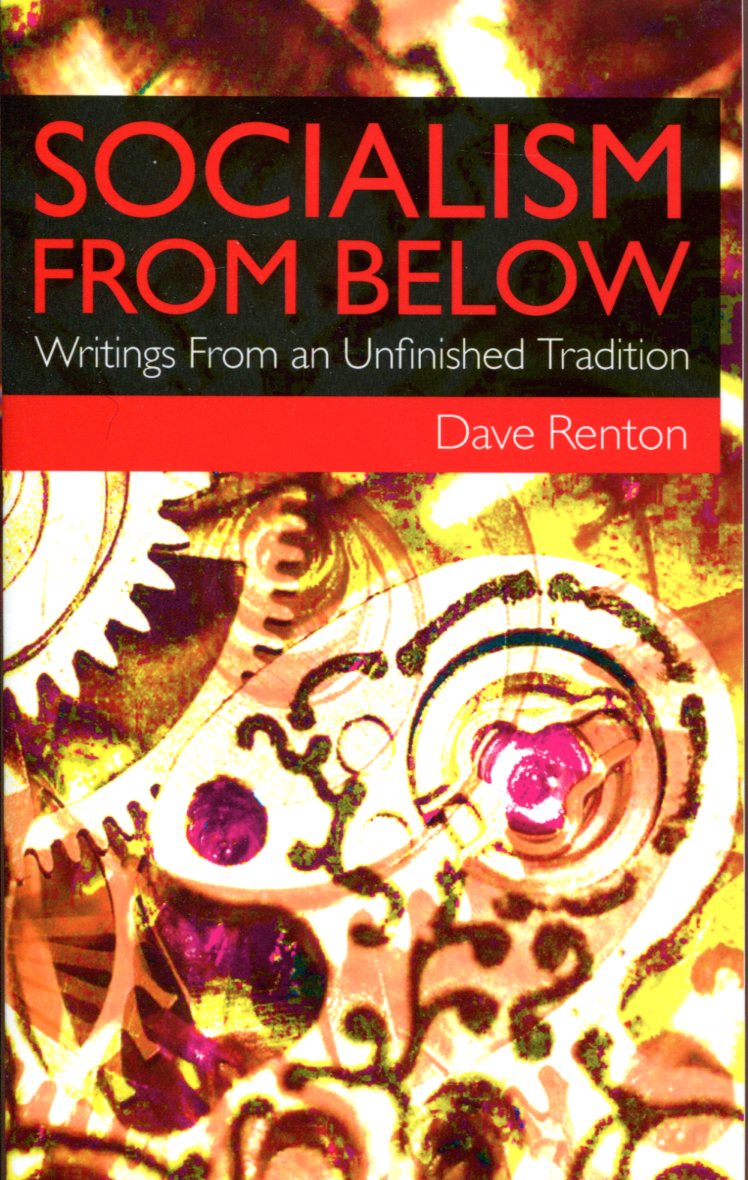
Argumentative, contentious and thought-provoking, these collected articlesinvite us to critically reconnect as a diaspora to the IS tradition – not onlyof Cliff or Harman, but also Hallas, Kidron, Sedgwick, MacIntyre, Harris,Widgery, Higgins and many others, many unsung. This is the extension of aninvitation to reconnect not as a lifeless antiquarian exercise or arrogant exclusivismbut in the spirit of the critical slogan ‘the IS tradition is dead! LongLive the IS tradition!’Jules Alford
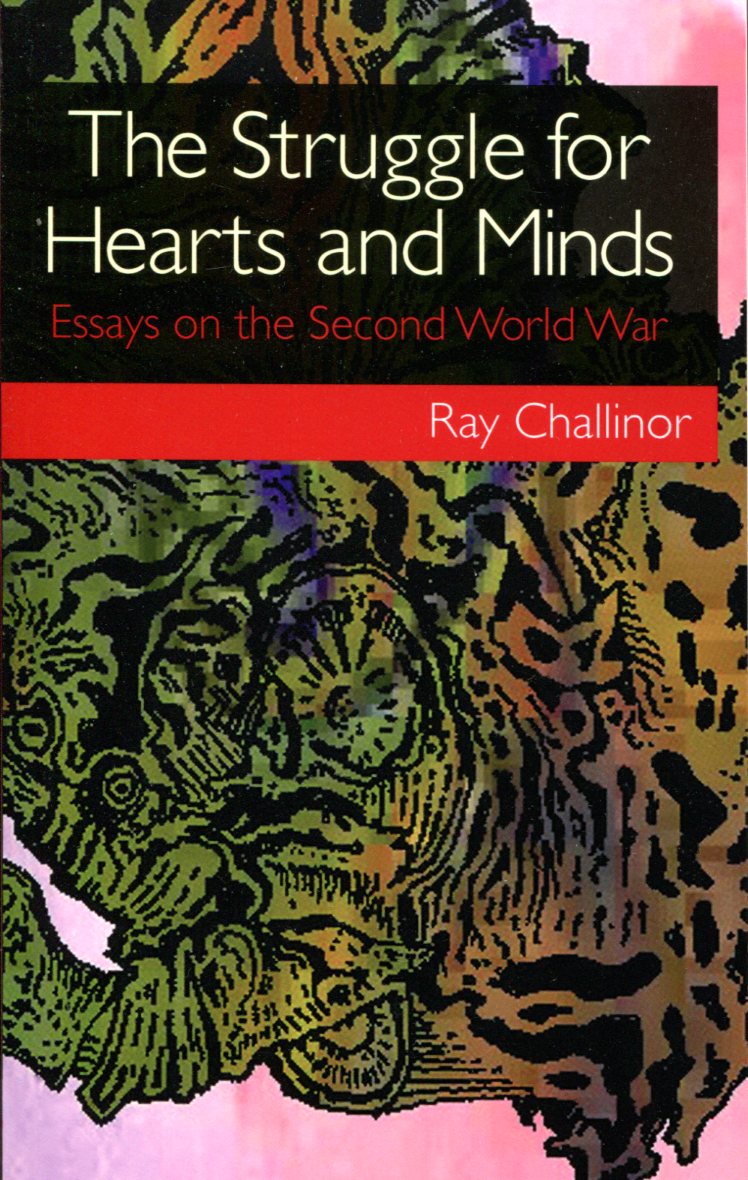
This book of essays is a shocking read, but the shocks arrive from the history itself, not sensationalist writing. We’ve been told that the Second World War was a war against evil waged by the goodhearted and true. The spectre of Hitler and Nazism is invoked every time NATO bombs are aimed at a defenceless country. In his scathing account of ruling-class fears, plans and allegiances, Ray Challinor shows how much their every move was governed by competition and self-interest – and anxieties about popular reaction. His evidence shatters the comforting national myth which has been spun around the cataclysm – and shows that people, working-class people, do not like killing each other, they had to be cajoled and manipulated into doing so.
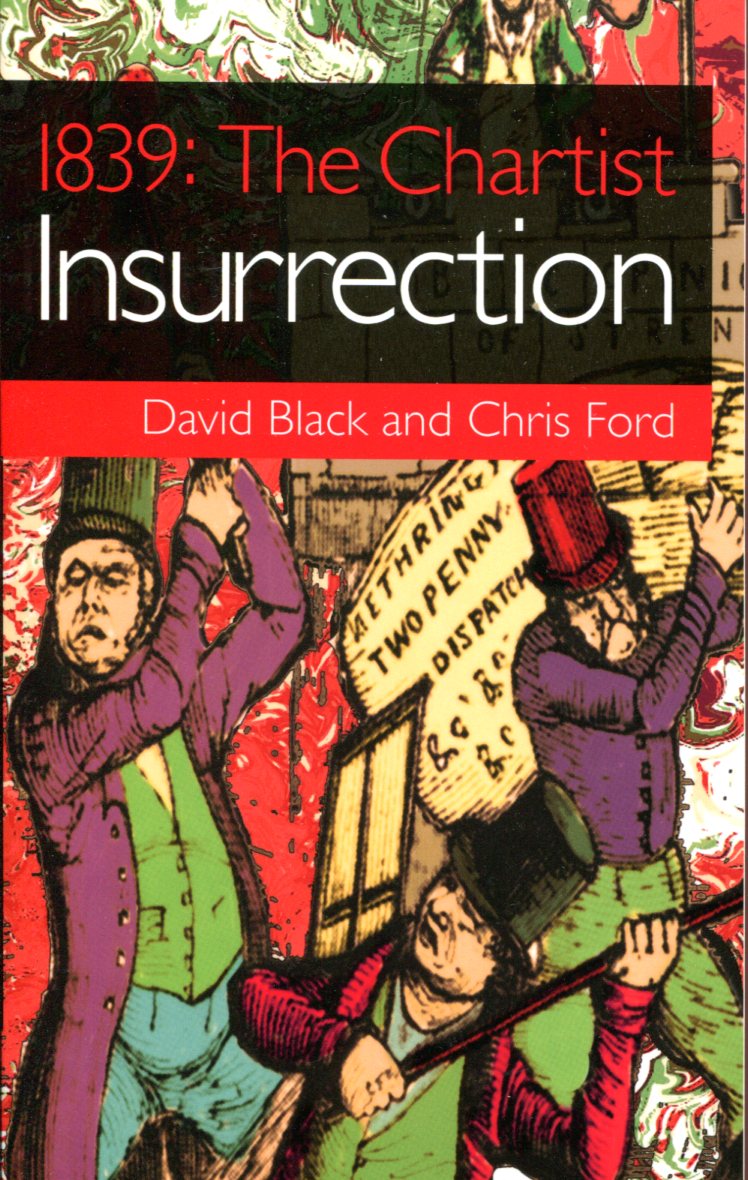
Those elements or key events in Labour movement history that have not conformed to the theory of the ineluctable evolution of the movement into a party committed to peaceful constitutional reform have been either written out of history altogether or relegated to mere historical footnotes. Often they are portrayed as deviations at best irrelevant to or, worse still, hindering the progress of effective working-class political representation. Those historical actors or movements that in Britain explored or attempted other routes to political change are generally considered condescendingly as primitives or patronisingly as naïve as soon as they ventured down the path of physical force or large scale resistance associated with Revolution rather than Reform. Consequently, in most histories of the British Labour movement the story of the Chartists has focused on the large-scale mobilisations of petitioners, the development of mass-circulation radical newspapers for working people and the promulgation of the tactic of the general strike, the ‘sacred month’ or ‘big holiday’. The Newport Uprising and other attempts to use physical, as opposed to moral force have been, if not hidden from history, then at least pretty heavily disguised. ____________________________________ With its meticulous attention to detailed sources, its comprehensive scope and its exacting research, this book doesn’t just address the neglect of this important and interesting episode in Labour movement history, but more importantly it also challenges us to think again about the revolutionary potential of the British Labour movement.By challenging the prevailing hegemony relating to the events and significance of 1839, this book assists us greatly in understanding the potential for future challenges to the system.John McDonnell MP, Foreword In retrieving the suppressed history of the Chartist insurrection, David Black and Chris Ford have written a revolutionary handbook. Without romanticism or condescension, they track the difficulties of unifying local revolts without selling out to the ‘representative politics’ favoured in the parliamentary charade. As today’s anti-capitalism faces the problem of anger without organisation, the lessons of the Chartists become crucial. Dialectics is not something to be derived from pure philosophy: by looking at the political problems of an insurgent working class, Black and Ford resurrect the true One-to-Many dialectic.Association of Musical Marxists
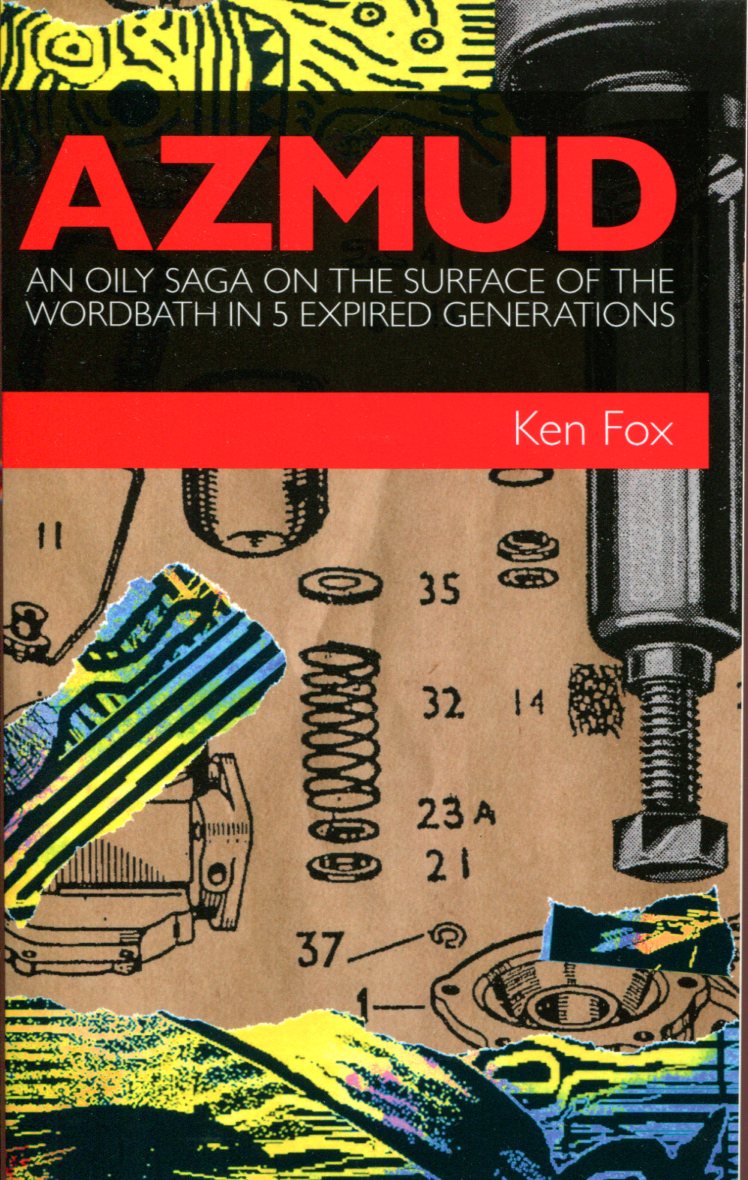
Daphne Lawless: Like many a missive from that Better-World-That-Exists-Alongside-This-One, AZMUD's very varied title is a literal route in - a Hebrew (or Arabic?) style triliteral root in ('ZM'D), which the meaning is condensed in consonants unviolated by vowels which move anywhere.IT'S MUD. In a dreamworld where commodity fetishism is reversed, capital as dead labour comes to life - the internal combustion engine, the newspaper press, the construction crane, the hydro dam rage to monomaniacal, theocidal dreamlife. The river of life flows backwards and uphill as waste products feed on themselves in a floodland that's driven apart and a crewmember on a red blood cell wonders what it's all about. A solitary I goes down the gurgler over and over again, and the life of the unicellular and famous is revealed as biochemical warfare. It's a trip, true fiction-science. _____________________________________________ Drifting in & out of sense as in an interrupted dream, Azmud is a novel contribution to literary art as political allegory. In each of its five sections - 'expired generations' - it attempts to retell the tale of the human psyche, the damage it has undergone under capitalism, in the form of a wandering work tribe searching for value in the spectacular flow of mass communication, on behalf of various severe 'generals' who demand a quota of abstract accumulation. But each of Azmud's industrial adventures in turn become allegories for the act of the text's own creation. But what happens in Azmud? Under orders, a human herd wanders thru the dense miasma of mass communication, hunting for precious ox-ore to stash in their air-ark or fuel their ancient steam engine. A vagrant crew invades the broken dreams of a drowsy industrial tycoon, stealing baskets full of his precious sleep. A homeless hoard combs thru post-industrial litter, searching for burnable rubble. A fake engineer captures a team of lost work-horses & four mammoth protozoans to help boost the energy yield of his toxic currents. A cargo ship collects a crew of stranded industrial outcasts with their precious ark full of ore & its tyrannical captain subjects them to relentless injections & many unwanted adventures. Daphne Lawless: Like many a missive from that Better-World-That-Exists-Alongside-This-One, AZMUD's very varied title is a literal route in - a Hebrew (or Arabic?) style triliteral root in ('ZM'D), which the meaning is condensed in consonants unviolated by vowels which move anywhere. IT'S MUD. In a dreamworld where commodity fetishism is reversed, capital as dead labour comes to life - the internal combustion engine, the newspaper press, the construction crane, the hydro dam rage to monomaniacal, theocidal dreamlife. The river of life flows backwards and uphill as waste products feed on themselves in a floodland that's driven apart and a crewmember on a red blood cell wonders what it's all about. A solitary I goes down the gurgler over and over again, and the life of the unicellular and famous is revealed as biochemical warfare. It's a trip, true fiction-science. More news when we have it... PRAGMANIC MONOLOG WHAT WHAT WAD is this slice of individuated sausage off the long-stock, stack on a rack unstuck from global bondage? It is I, this, frail spazum, asmud, unstuck stock. I am uncut, occult, unclear, oblique. Can walk, can walk word over word with sinking feet, frolicking, picnicking, panicking in heap. Can dream awake dread wages, can rip together digital package, sleep apart nebulous plastic creations stretched out of bituminous commune, can burn together fibrous masses, sick stock for evaluation, for flaunting at death-markets as life-song unsung but edible in ink-frame & derivable as format-transfer capital capture cumulous for custom spirit capacitor house-boat install. Camera-ready verb-files proturbing thorough over pulp wilderness, this is occultic riddle filtered thru collective commercial time-transfer. I own up. I drop name. I gather rights. I hoist possession, this oracular oral cabbage decaying. I wrought in ink village. I collect in pulp mountain. I ascend holy commode, prosperous seeking grist for hungry engine. Am absurd, as think-wad shaking. Am bonded, bound to, bounding from, rebounded to Wascana Creek, as earth transfer trickling. Am job office plunking as this, finger-linking component strapped to transfer apparatus & obliged to prime mover. Give job now. Give it wages for work. Get you southbound & go up in the mountain & see what wealth therein dwells. Enter wired caves, evade plasma network, insert yourself into the center well & ascend. What cities, what tents, what good bad trash therein? What fat seams, lean streaks? Be bold, bring first fruit you find therein. Now is the time to mine the first grapes before the apocalyptic living creatures ever again are herded into their waste eating habit. Go where the brook branches & cut pages with grape-clusters & bare it on a yoke. Return after 40 hours & speak of coal & gas & black shakes & yellow cake.
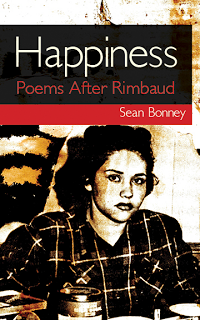
It is impossible to fully grasp Rimbaud’s work, and especially Une Saison en Enfer, if you have not studied through and understood the whole of Marx’s Capital. And this is why no English speaking poet has ever understood Rimbaud. Poetry is stupid, but then again, stupidity is not the absence of intellectual ability but rather the scar of its mutilation.Rimbaud hammered out his poetic programme in 1871, just as the Paris Commune was being blown off the map. He wanted to be there. It’s all he talked about. The “systematic derangement of the senses” is the social senses, ok, and the “I” becomes an “other” as in the transformation of the individual into the collective when it all kicks off. It’s only in the English speaking world you have to point simple shit like that out. But then again, these poems have NOTHING TO DO WITH RIMBAUD. If you think they’re translations you’re an idiot. In the enemy language it is necessary to lie.

Richard Barbrook & Fabian Tompsett: Class Wargames Presents Guy Debord's The Game of War (The Extended Film Script) https://vimeo.com/17116481

Second printing in softcover, print run of 300 copies. 160 pages, 16 of which in colour. Contains essays, an interview and many pictures, photographs, flyers and other documents! The perfect companion to the 4xLP "My Life's a Gunshot retrospective compilation!

In this collection of writings, Howard Slater improvises around what Walter Benjamin could have meant by the phrase 'affective classes'. This 'messianic shard' and its possible implications leads Slater to develop a therapeutic micro-politics by way of a mourning for the Workers' Movement and a grappling with the 'becomings of capital'. The essay 'Anomie/Bonhomie' is the keystone of this book which also features tributary texts and poems drawn from the past ten years. These supplementary texts approach such themes as exodus, species-being, surrealist precedents, poetic language and the possibilities for collective 'affective' practices to combat capitalism's colonisation of the psyche. Howard Slater is a volunteer play therapist, sometime writer and ex-housing worker. Whilst he has been writing since the early 1980s he has mainly been published in small press magazines, independent publishing initiatives and web sites. His texts and poetry have been supported and published by: 10th Floor, Alien Underground, Audiolab Arteleku, Autonomedia, Autotoxicity, Break/Flow, Copenhagen Free University, Datacide, Difficult Fun, Fatuous Times, Five Leaves Left, Here & Now, Infopool, Infotainment, Mute, Night Class, Noise Gate, Obsessive Eye, Palantir, Papakura Post Office, Penniless Press, Rebel Ink, Resonance Magazine (LMC), School of Walls & Space, Smile, TechNET, Variant, Working Press. ISBN 978-1-906496-72-2 Date of Publication: 1/2012 152 pages
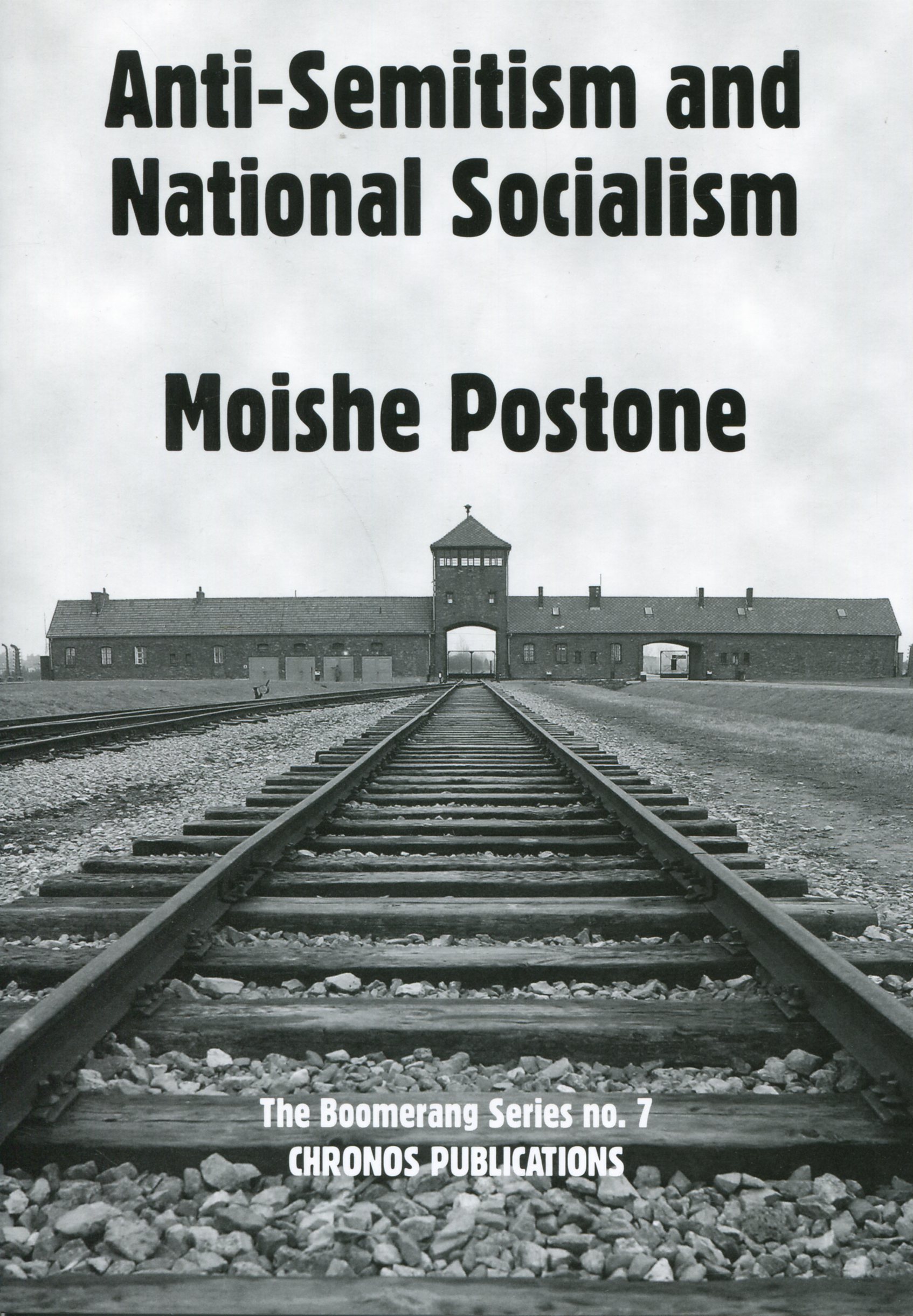
"The Holocaust... cannot be understood so long as anti-Semitism is viewed as an example of racism in general and so long as Nazism is conceived of only in terms of big capital and a terroristic bureaucratic police state. Auschwitz, Belzec, Chelmno, Maidanek, Sobibor, and Trenlinka should not be treated outside the framework of an analysis of National Socialism. They represent one of its logical end points, not simplyits most terrible epiphenomenon. No analysis of National Socialism that cannot account for the extermination of European Jewry is fully adequate." In this excellent essay Moishe Postone, author of the critically acclaimed "Time, Labour and Social Domination: A Reinterpretation of Marx's Critical Theory", develops a profound analysis of the relationship between modern anti-Semitism and National Socialism, which deepens our understanding of the Holocaust.

The back cover blurb: Down & Out in Shoreditch & Hoxton is a slice-and-dice splatter novel in which time-travelling streetwalkers hump their way from the trendy east London of today back to the skid row mutilations of the Jack the Ripper era. As gentrification forces the hookers from their age-old beat along Commercial and Wentworth Streets, they don Victorian Widows' weeds and ply their trade in local graveyards. Amid these psychogeographical dislocations, warm blood isn't the only thing that gets sucked by the night creatures who haunt Home's anti-narrative. This is without doubt the weirdest book ever written, the illegitimate offspring of the Marquis De Sade balling a post-modern literary extremist at a ladies of gangster rap convention. (It also reveals the true identity of Jack the Ripper.) Alternatively: Down & Out In Shoreditch & Hoxton is a quirky book that provides a very different picture of what is now London’s most fashionable quarter to Monica Ali’s Brick Lane. Although it is not a work of realism, it does benefit from the fact that for many years I lived on a council estate a couple of minutes walk from Brick Lane. This book is both shorter and denser than Monica Ali’s novel since it self-consciously fuses poetry and prose. It was generated using the restriction that every paragraph should be exactly 100 words long. So what I’ve produced is both a novel and a prose poem. It is also simultaneously subtle and gross, lucid and outrageous, profound and glib. In this book I look at how gentrification over the past few years has transformed Shoreditch and Hoxton. One of the most visible signs of this is the way in which prostitutes have been shifted around as pressure has been put on them to leave the area. There are literary references to prostitution in the locale going back four hundred years and the book is informed by both this history and the more general history of the representation of prostitutes in English fiction. In the book I imagine prostitutes ultimately being forced off local streets and into Tower Hamlets Cemetery where they are able to plough their trade unmolested by the police after disguising themselves in widow’s weeds. My interest in prostitution emerges at least partially from the centrality of 'the whore' as an iconic figure within modernist culture. The heart of the book is a parody of de Sade in which a succession of prostitutes try to fuck a john to death. Other literary figures who play an important role in the novel include William Burroughs who is revealed as having mastered time travel prior to his death and who I am therefore able to finger as the 'real' Jack The Ripper. Among other things this solution to the riddle of The Ripper’s identity is intended to illustrate the absurdity of much discourse on the subject and the ways in which a culture predicated on celebrity places a greater value on the activities of a serial killer than the lives of his victims. In its earlier parts the book is about consciousness whereas towards the end it slips into sleep and death. Thus since this is a work in which form and content are self-consciously fused, as the female narrator describes sleepwalking, the prose is made to stumble. Down & Out In Shoreditch & Hoxton is a book in which there is something to delight and offend everybody. This is the perfect read for anyone fed up with bland novels and who wants to try something different. There sheer oddity of the book ensures it will appeal to anyone wanting a change from their usual literary diet.
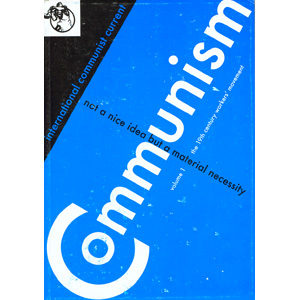
ICC: Communism - Not a nice idea but a material necessity Vol.1 Volume 1 - the 19th century worker's movement. The series of articles in the International Communist Current's journal International Review that appeared under the same title over the last few years are now collected in book form.

